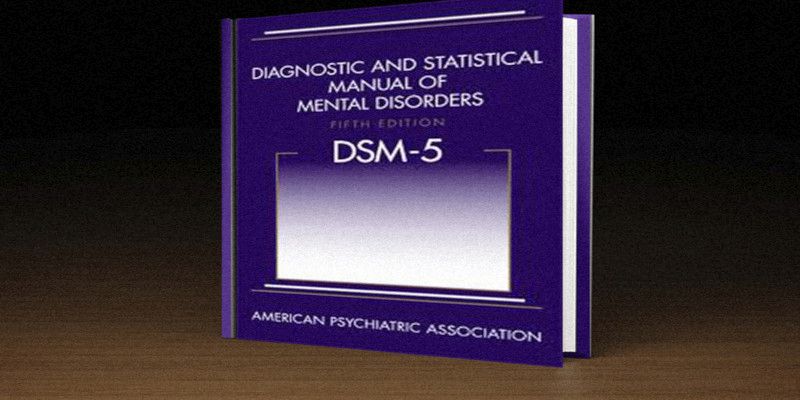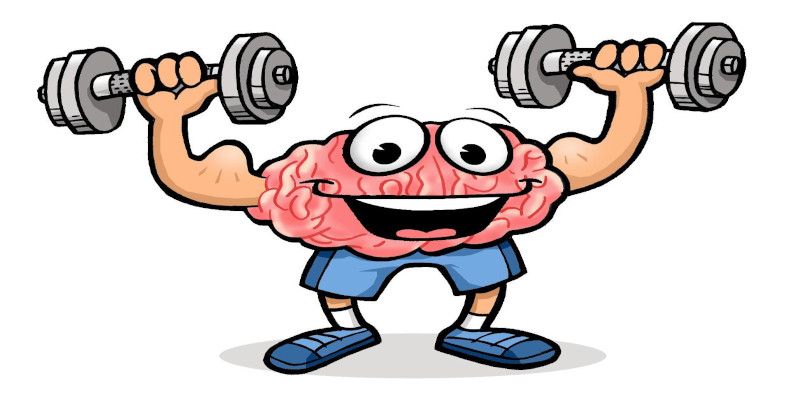Table of Contents
ToggleDepression is often called the “silent killer.” And for good reason.
It is a terrible disease that often goes unnoticed by other people. Hence, its name.
You feel bad all the time and have no motivation to do anything. No goals, no desire to get out of bed, constantly ruminating, and your mind constantly filled with dark and negative thoughts.
That’s why we need a comprehensive guide that can teach us how to beat depression by treating the multiple facets that it impacts at the same time. Both physically and mentally.
What is depression?

Depression is a common mental mood disorder that negatively impacts the way you feel, think, and consequently, act.
When depressed, the neurotransmitters that regulate our moods such as dopamine, serotonin, and norepinephrine are unbalanced. This will lead to a list of mental and physical problems, which can in turn lead to problems at home, work, or in your social life.
But even though depression is a terrible disease to suffer from, the most important and positive part is the following. Depression is treatable. Thus, seeking professional help, and aid from close friends in addition to family is preferred. Even self-help by doing research and reading books can be a great way to get better!
Primary DSM-V depression disorders: criteria for adults

| Depressive Diagnoses | Symptoms |
|---|---|
Major Depressive Episode:
Minor Depressive Episode:*
|
|
Dysthymic Disorder
|
|
- *Not a formal diagnosis, but considered a research category requiring further study.
Click here to see the scientific literature link used to create the DSM-V depression disorders criteria for adults.
DSM-V depression criteria

The DSM-V outlines the following criteria to make the diagnosis of depression.
- The individual must be experiencing five or more symptoms during the same 2-week period, and at least one of the symptoms should be either (1) depressed mood or (2) loss of interest or pleasure.
- A minor depressive episode is characterized by 2–4 symptoms during the same 2-week period, and at least one of the symptoms should be either (1) depressed mood or (2) loss of interest or pleasure.
- To receive the diagnosis of depression, these symptoms must cause the individual clinically significant distress or impairment in social, occupational, or other important areas of functioning. The symptoms must also not be a result of substance abuse or another medical condition.
Using DSM-V to diagnose depression
The DSM-V can be used as an effective diagnostic tool by health professionals to determine if someone is suffering from depression or not.
This way, whether you have depression or not is determined based on a scientific measurement tool. To be sure you’re suffering from depression, you must always be diagnosed by a professional healthcare practitioner.
Differences between being depressed and sadness

A lot of the symptoms listed above can also be felt when we are feeling sad.
For example, we can feel sad, have trouble sleeping, and feel worthless if a loved one dies because we’re so distressed. Most of us experienced those same feelings when our pet died, which many consider to be part of the family.
The key difference between depression and sadness is that sadness often comes as part of a natural, individual grieving process. Depression is not a naturally occurring process.
Part of why sadness is frequently confused with, and misdiagnosed as depression is because these symptoms also regularly last much longer than two weeks, which is needed to be diagnosed with depression.
That’s because a grieving process typically takes a long time and differs from person to person. Lasting for weeks, months, to possibly, years. Take note that sadness and depression can coexist. So even if you name something as sadness, depression should still not be ruled out of the equation.
Sadness often differentiates itself from depression in:
- When grieving, negative and painful sensations come in waves. It’s frequently combined with positive memories of the person/animal we are grieving.
- Most of the self-esteem is maintained when grieving. With depression, self-esteem is greatly reduced!
Possible symptoms of depression

Less or no desire to do anything
One of the most prevalent possible symptoms of depression is no desire to do anything at all.
Hobbies that you might’ve previously enjoyed like weightlifting and running, for example, suddenly mean very little to you.
But it’s not only about your hobbies. Even simple things like getting out of bed, and showering yourself might suddenly become very hard to do because you have zero motivation, arousal, and energy to do so.
Your thoughts get darker and more negative
It becomes increasingly harder to see the optimistic things in life or the positive in other people.
You tend to get more negative, nihilistic, cynical, and more pessimistic overall.
Overthinking

You tend to start overthinking when things are going poorly, which is basically what depression is. Feeling bad all the time.
It seems like there is no ‘off’ button to your mind and thoughts anymore.
The problem is that countless possible antagonistic scenarios can happen in your life. And continuously focusing on the negatives instead of the more optimistic things will lead to you not being able to see the positives in others, and life in general anymore.
I believe that certain personality types are more at risk for developing overthinking behavior based on certain characteristics that increase their proclivity towards overthinking.
Anxiety

All these negative thoughts combined with the typical pattern of overthinking lead to increased levels of anxiety.
This anxiousness can be about the smallest, seemingly insignificant things in life, which might seem trivial to other people who are not suffering from a mental disease.
Simple things such as calling, or even visiting your friends might freak you out and cause you to ruminate about it.
Ruminating

Negative thoughts keep running through your head without any way to shut your mind down anymore.
This means that you can’t get any rest during the day, while not being capable of getting any sleep at night.
Irritable
Because your thoughts get darker, and you start overthinking and ruminating more combined with a decrease in sleep quality, you start to get a lot more irritable.
You could describe this as being in a ‘foul mood’ all the time.
The smallest thing might set you off. Even if the person in question didn’t even say, or do, anything wrong in the first place.
Increased desire to self-medicate

You might have an increased desire to drink alcohol, especially during the week since we’re typically more stressed out while working rather than we’re relaxing during the weekend.
I guess that’s because drinking alcohol, or consuming any drugs for that matter, is addictive and will release dopamine which is our ‘happiness hormone’. These neurotransmitters make us feel better instantly.
Your sleep quality decreases
Your sleep quality will almost inevitably get worse if you suffer from depression. That’s due to multiple reasons such as overthinking and ruminating all the time.
This increased amount of anxiety and stress you experience is also a big factor in not being able to catch much sleep. And if you do, you probably can’t sleep through.
Appetite changes

You might forget to eat because you are so stressed out and sunken in dark thoughts.
It might also be the case that you react oppositely and start eating a lot more than you did previously.
If this ever happens, then chances are that there will be a lot of sugar and fast food in your diet. These products are preferred since they’re addicting because they release endorphins as well. These endorphins being released are hormones that make us feel better, hence the term ‘stress eating’.
Feelings of helplessness

Because of all those negative thoughts and feelings floating around in your head, you may start to doubt yourself.
You might begin to wonder if you can ever recover from your illness because you don’t see the light at the end of the tunnel anymore.
If you feel that you’ve lost control of your life, then you will start feeling helpless because ‘it’s not under your control anyway’.
Having a hard time thinking clearly and concentrating
Having a hard time thinking clearly and concentrating is probably linked to having poor sleep hygiene, as in sleeping too little, and with no or little consistency. Being stressed out is also a big factor in not being able to sleep well.
This in turn makes your thinking more ‘foggy’ and less clear and fast as a result. You might have trouble focusing on tasks, be easily distracted, and have a hard time concentrating on what you’re currently doing.
My 6 best tips to cure depression

Take responsibility
You need to take responsibility because that’s part of what makes life worth living.
Not having any obligations might sound great on paper, and as a very attractive alternative way of living, but it’s a trap in disguise. Without having any kind of duty, you have the advantage of nothing mattering, so you can do whatever you want.
But the big disadvantage of having no obligation is that nothing matters. How can you be content and happy when nothing in your life has any kind of meaning?
So take some responsibility for your own life. Take control over your social life, your goals, what you need to improve on, and so on. Starting small and gradually taking on more duties as you advance through life would be my advice.
Set goals

Closely related to the tip from above, setting goals for yourself means you’ll have to take the necessary responsibility if you want any chance to reach them.
Everyone needs something worthwhile to pursue in their life because why would you come out of bed otherwise? If you are severely depressed, then there might be nothing that interests you anymore. And as a result, you don’t have any goals, or will to live anymore.
If this is the case, then I would say the following. Make goals about the things you found important in the past like getting in shape, painting, gardening, or meeting with friends, for instance.
The only things that matter here are setting destinations for yourself that might be worth getting out of bed and living for. And if you don’t want to try the things you’ve liked in the past, then set goals for the things you think would bother you the least, even though you might not necessarily enjoy them at first.
Make long-term goals and split these up into short-term goals to achieve. Even better is to write them down somewhere, so you can evaluate how your progress is going, and so you have something to hold on to when times get tough. Writing things down is also a very useful measurement tool to see how far you’ve already come.
Exercise

Exercising can help to cure depression since it releases endorphins that improve our mood.
The same effect can be noted when we eat chocolate, or when we drink alcohol. Nevertheless, simply exercising is a lot healthier than both of these alternatives.
Why is this important? Because your endorphin-serotonin system is basically out of wack when you’re depressed.
If we wish to combat this, then exercising is a powerful cure for depression, seeing as it releases endorphins. All forms of exercise are viable to improve your health, and to cure your depression. Nevertheless, the most efficient and healthiest way is to combine cardio with a form of resistance training.
Fix your sleep schedule

Female student sleeping on the sofa This easy tip is one of the hardest to implement. Mainly because you have no goals in life anymore when you are severely depressed. This makes it hard to get out of bed because why would you bother to get up when there’s nothing you look forward to anymore?
It also doesn’t help that you’re tired all the time because of all the negative thoughts and all the ruminating that’s going on in your mind. Add in having a lot of trouble falling asleep and sleeping through, and you can imagine why it’s so challenging to fix this unhealthy sleeping pattern.
Yet, going to sleep and waking up at a fixed time does help your recovery. Being depressed means your biological rhythm is out of wack, so you’ll need to try to reset this towards its natural state and keep it nice and steady afterward.
Creating a good, healthy sleeping routine will aid you in keeping your biological rhythm in check.
Change your mentality

People who are depressed are oftentimes, although not always, overthinkers who focus more on the negative events than they do on the optimistic circumstances.
At times, this toxic way of thinking is so pronounced that they can’t even see the constructive things in life anymore, which leads to becoming angry, cynical, and resentful of others and the world they live in.
Even a negative event can bring about supportive experiences and changes. So you need to actively try to look at the beautiful things that happen in life, no matter how small those might be, and seem.
I’m not asking you to renounce the fact that atrocious things are happening in the world because that’s reality. But it’s also true that there are a lot of great things occurring in the world at this very moment. You just need to readjust your mentality and personal view to find those positive things.
That’s why you need to learn how to develop a winning mindset in addition to a positive outlook on life.
Medication

Depending on how severe the depression is, you might have to take antidepressants. If it’s not that severe, then you can start making changes without taking antidepressants.
Whatever reasons you have not to take antidepressants, those points are all moot when you end up harming yourself, or even committing suicide. Whether it’s because you don’t trust the pharmaceutical companies, or because you view relying on pills as a form of “weakness”. This might sound harsh, but it’s true. All those points become invalid if you end up killing yourself.
I’m not saying that medication is going to fix the cause of the depression, although it can. But it often at least decreases the harsh symptoms that depression brings with itself, which will help you to function decent enough to allow you to do other things to cure your illness. In other words, it can help to make the depression more manageable.
Seek help

If you are suffering from depression, then make sure to seek help. Both professional aid, and support from close friends and family.
The reality is that everyone needs assistance, and a shoulder to cry on from time to time. A good support network can help you to recover from depression by changing your mentality, and the way you behave.
To those attempting to aid someone with depression, you should do so, as we must assist others in need. But keep in mind that you can’t help everyone, no matter how much you want to.
Still, NEVER deny help to someone who’s reaching out to you for assistance. You might just be the last person they have to turn to.
How can exercising help you to cure depression?

I’ve said before that everyone should exercise, and that’s especially true for those suffering from depression.
That’s because depression is a mood disorder, characterized by the neurotransmitters dopamine, serotonin, and norepinephrine being out of balance.
These neurochemicals are important hormones because they regulate our temper. It’s most fortunate and convenient that a critical side effect of exercising is stimulating and raising our dopamine, serotonin, and norepinephrine levels.
In return, it’ll help to regulate our mood due to our hormones being more in a balanced/natural state. As a result, our temper will improve, and the associated symptoms will be reduced or eliminated.
It’s been shown that the hippocampus, which is located in the brain and aids in regulating our mood, is smaller in people with depression.
Working out, whether it’s resistance training like weight lifting, or cardiovascular workouts like walking, running, or cycling, both help to improve our mood by releasing these essential neurochemicals.

Exerting ourselves creates new nerve cells in the brain, effectively making new connections. It’ll make us feel better and get depressed individuals in a better mental, and physical state. Being in better general health allows them to participate in the world again. Be it at work, at home, or in their social life.
Training also helps us to fall asleep better, which is something that’s greatly disrupted in this particular disease. It is suggested by studies that exercising increases our body temperature, which means that a drop in temperature after training may promote falling asleep.
Working out also decreases anxiety, and depressive symptoms, and increases arousal, which will help ease your mind and put a halt to procrastinating when it’s time to go to bed.
Procrastinating is often a huge problem when lying in bed with nothing else to do but sleep or, … THINK. At night, when everything is quiet, and with no distractions around, is often when people’s minds start wandering off. And when suffering from mental diseases, typically not to a good place.
Why it is often so hard for depressed people to exercise?

It’s not that difficult to figure out why it’s hard to work for those suffering from depression when we take a look at the previously associated symptoms.
The loss of interest and pleasure in activities often causes people not to see the purpose of exercising anymore. Because what’s the purpose of working out when you’re not having fun when doing so?
Factor in the sleep deprivation from having trouble falling asleep or getting quality rest, which leaves them feeling sad and low on energy all the time. All these aforementioned symptoms make it even harder to start exercising and to keep at it.
Despite all this, it’s in EVERY PERSON, and especially the depressed individual’s best interest to start exercising and to figure out a training routine to keep them working out. Exerting ourselves is one of the few natural, and most effective ways of treating depression in my opinion. Numerous studies have also proven this to be true.
Of course, working out and keeping at it is hard when you find no joy at all in those activities. I only have one answer regarding this problem that might be difficult for some people to hear. Tough it out, and keep at it. Start exercising for 4–8 weeks and analyze if your mood improves or if you notice that you are starting to enjoy it if just a bit. If not, switch to another form of exercise.
Because if resistance training is not for you, cardiovascular exercising might just do the trick! Remember, different strokes for different folks. So don’t give up on working out as a whole if you don’t immediately enjoy it, or see the results.
Look at the rewards of exerting yourself as a long-term investment, rather than a short-term fix.
The single most important thing people with depression should do

I think the most important thing a person who’s diagnosed with depression can do is to set small goals and create and maintain healthy, useful routines to reach those ends.
You need to analyze and be introspective to figure out what values are valuable to you. This way, you can figure out goals that are critical to you. It’s best to base them on your values and norms, as this will be something that matters to you. A goal that’s essential to you will give you the intrinsic motivation needed to succeed.
For example, getting more sleep because you are sleep-deprived, and feel tired all the time as a result. To accomplish this, a healthy and useful routine might look something like the following. Exercising during the day, while going to bed and waking up at the same hour each day of the week.
Other potential goals could be exercising more, socializing more with friends and family, learning a new trait, and so on. The possibilities are endless, you just need to believe in them!
Conclusion

What you want to do is create healthy habits that enable you to live contently again.
Depression is a vicious circle where all the negative symptoms empower each other. All those indications together can leave you immobilized entirely.
That’s why we need to take a holistic approach to combat this disease. This silent killer. The tips I wrote down will give you purposeful routines for your physical and mental well-being.
On a final note, realize that you’re not alone in suffering from depression. You can click the following link if you are interested in my struggle and personal experience with depression.













2 thoughts on “Comprehensive guide to beat depression”
Comments are closed.